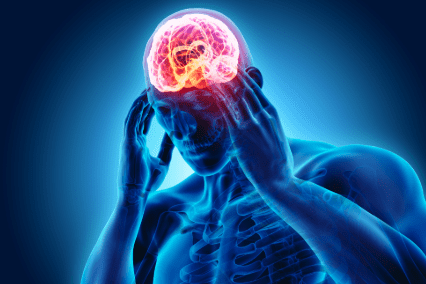Our bodies are remarkable machines, performing countless processes every second to keep us alive and healthy. One of the most important and fascinating of these processes is the filtration of blood and the removal of waste. While it may seem invisible and complex, this process is vital to maintaining balance in the body, supporting energy levels, and preventing the buildup of harmful substances. Understanding how blood is filtered and how waste is removed can provide insight into the incredible efficiency of our internal systems.
Blood circulation is not only about transporting oxygen and nutrients to various organs; it is also a system for carrying away substances the body no longer needs. Each time your heart pumps, blood moves through vessels that deliver nutrients to cells while picking up byproducts like carbon dioxide and metabolic waste. Without a way to filter out these byproducts, toxins would accumulate, and our organs would struggle to function properly. This is where specialized organs, particularly the kidneys, step in to play a critical role.
The kidneys are often described as the body’s natural filters. Located on either side of the spine just below the rib cage, these small but powerful organs handle a tremendous amount of blood every day. Each kidney contains millions of tiny filtering units called nephrons. Nephrons act like microscopic sieves, carefully selecting which substances to keep and which to remove. They regulate the balance of fluids, salts, and minerals in the blood, while removing waste in the form of urine. This filtration process ensures that the body maintains a stable internal environment, known as homeostasis.
Blood filtration is a continuous and highly organized process. When blood enters the kidney through the renal artery, it flows into smaller and smaller vessels until it reaches the nephrons. Each nephron begins with a structure called the glomerulus, a tiny cluster of blood vessels where filtration begins. Here, water, salts, glucose, and other small molecules are filtered out of the blood, while larger molecules like proteins and blood cells are retained. The filtered fluid, known as filtrate, then passes through a series of tubules where the body carefully reabsorbs useful substances, such as glucose, certain salts, and water. This selective reabsorption ensures that valuable nutrients are not lost while waste products continue to move toward excretion.
One of the most critical functions of this process is the removal of urea, a waste product generated from the breakdown of proteins. Urea and other nitrogenous wastes are toxic if allowed to accumulate in the bloodstream. The kidneys’ ability to efficiently remove these substances protects the body from damage and supports overall health. In addition to urea, kidneys also filter out excess ions, creatinine, and other metabolic byproducts, all while maintaining the delicate balance of electrolytes and fluids that the body needs for proper nerve and muscle function.
Another important aspect of kidney filtration is its role in regulating blood pressure and red blood cell production. The kidneys release hormones that signal the body to adjust blood pressure when necessary and to produce more red blood cells when oxygen levels are low. This connection highlights how intimately blood filtration is linked not just to waste removal, but to overall physiological balance.
While the kidneys are the primary organs responsible for filtering blood, they are supported by other systems as well. The liver, for instance, works to detoxify chemicals, metabolize drugs, and process nutrients before they reach the bloodstream. The lungs also play a complementary role by removing carbon dioxide, another form of metabolic waste. Together, these organs form a network that ensures the blood remains clean, healthy, and capable of delivering essential nutrients to cells throughout the body.
Proper kidney function is essential, but it is also delicate. Factors such as dehydration, high blood pressure, excessive salt intake, and certain medical conditions can compromise the efficiency of blood filtration. When the kidneys cannot filter blood effectively, waste products accumulate, leading to a condition known as uremia. Over time, chronic kidney disease can develop, which may require medical intervention, dietary adjustments, and, in severe cases, dialysis or transplantation to support the body’s filtration needs.
Fortunately, there are ways to support the kidneys naturally. Staying well-hydrated helps maintain the flow of blood and urine, reducing the risk of waste accumulation. Eating a balanced diet with moderate salt intake protects kidney function, while regular physical activity promotes healthy blood circulation. Avoiding excessive alcohol, limiting processed foods, and monitoring medications that may stress the kidneys are all proactive measures that contribute to maintaining the efficiency of blood filtration.
The process of blood filtration is also a testament to the body’s remarkable ability to self-regulate. Every day, kidneys filter approximately 50 gallons of blood, yet the body only excretes about one to two quarts of urine. This efficiency is achieved through precise filtration and reabsorption processes that ensure the body keeps what it needs while safely eliminating what it does not. The kidneys’ ability to adjust filtration rates based on hydration levels, nutrient balance, and overall health illustrates a sophisticated internal system that operates without conscious effort.
Understanding blood filtration and waste removal helps us appreciate the delicate balance required for health. It also reminds us that maintaining kidney health is a critical aspect of overall well-being. Regular check-ups, mindful nutrition, proper hydration, and awareness of risk factors all contribute to the longevity and efficiency of this vital filtration system.
In conclusion, the filtration of blood and the removal of waste are processes central to life itself. The kidneys, alongside the liver and lungs, ensure that our blood remains clean, our fluids balanced, and our bodies protected from harmful toxins. By understanding how these systems work, we gain insight into the remarkable coordination that keeps us alive and thriving. Supporting these organs through healthy habits not only helps maintain proper blood filtration but also promotes a longer, healthier, and more energized life. The next time you drink a glass of water or enjoy a nutrient-rich meal, remember that your body is constantly at work, filtering, balancing, and removing waste to keep you at your best.






